What are the Viewpoints of Psychology? When we talk about psychology, we’re diving into a field that’s as vast and varied as the human mind itself. From understanding why we feel the way we do to figuring out how to improve our mental health, psychology offers a rich tapestry of viewpoints that help us make sense of our behaviors and emotions. Today, let’s explore some of these fascinating perspectives, with a spotlight on how Elysian Psychological Services might approach them.
The Psychoanalytic Perspective: Unveiling the Unconscious
Sigmund Freud, the father of psychoanalysis, believed that our actions are deeply influenced by unconscious motives. According to this viewpoint, our early childhood experiences play a significant role in shaping our personality and behavior. It’s like having an iceberg where the bulk of our thoughts and feelings lie beneath the surface, unseen and often unresolved. Therapists might use techniques such as free association, dream analysis, and transference to help clients uncover these hidden thoughts. By bringing these unconscious elements to light, individuals can better understand and resolve their deep-seated conflicts, leading to healthier mental states.

The Behavioral Perspective: Conditioning and Learning
Ever wondered why you flinch when you hear a loud noise or why you automatically reach for a snack during a movie? The behavioral perspective can explain this. Pioneered by John B. Watson and B.F. Skinner, this viewpoint focuses on observable behaviors and how they’re learned through interaction with the environment. Behavioral therapy, offered by Arlington Psychological Services, uses techniques like positive reinforcement, punishment, and systematic desensitization to modify problematic behaviors. This approach is especially effective for treating phobias, addictions, and other behavior-related issues.
The Cognitive Perspective: Thinking and Perception
Our thoughts shape our reality. The cognitive perspective, championed by Aaron Beck and Albert Ellis, emphasizes how our thoughts and perceptions influence our emotions and behaviors. If we constantly think negatively, we’re likely to feel and act in negative ways. Cognitive-behavioral therapy (CBT), a staple at most psychology centers, helps clients reframe their negative thought patterns into more positive and realistic ones. By changing the way we think, we can change the way we feel and behave, leading to significant improvements in mental health.
The Humanistic Perspective: Embracing the Self
Imagine a perspective that views you as inherently good and capable of personal growth. That’s the humanistic perspective developed by Carl Rogers and Abraham Maslow. This viewpoint emphasizes self-actualization, free will, and human growth potential. At Elysian Psychological Services, our experts use client-centered therapy, where the therapist provides a supportive environment, encouraging clients to explore their feelings without judgment. This approach helps individuals tap into their inner resources and strive towards their full potential.
The Biological Perspective: The Brain and Beyond
Ever thought about how your brain chemistry affects your mood? The biological perspective delves into the physiological and genetic underpinnings of behavior. It explores how neurotransmitters, hormones, and brain structures influence our actions and emotions. Therapists at Elysian Psychological Services collaborate with medical professionals to address issues like depression and anxiety, which can have biological components. Medications, combined with therapy, can offer a comprehensive approach to treatment.
The Evolutionary Perspective: Adapting Over Time
Why do we have certain fears or social behaviors? The evolutionary perspective, inspired by Charles Darwin’s theory of natural selection, suggests that many of our behaviors have evolved to increase our chances of survival and reproduction. For instance, our fear of snakes or spiders could be an evolutionary adaptation to avoid danger. Elysian’s Arlington Psychological Services might integrate this perspective to help clients understand the origins of their behaviors and fears, providing a deeper insight into their mental health.
The Sociocultural Perspective: The Impact of Society
Our culture and social environment play a crucial role in shaping who we are. The sociocultural perspective examines how factors like race, ethnicity, gender, and socioeconomic status influence our behavior and mental processes. Therapists recognize the importance of cultural competence in therapy. They strive to understand and respect the diverse backgrounds of their clients, offering tailored treatments that consider these sociocultural factors.
Integrating Perspectives for Holistic Treatment
While each perspective offers unique insights, the beauty of psychology lies in its integrative approach. Elysian Psychological Services often combines elements from various viewpoints to provide holistic treatment. For instance, a therapist might use cognitive-behavioral techniques to address negative thought patterns while also exploring unconscious motives through psychoanalytic methods.
Practical Applications and Real-life Examples
Let’s bring these perspectives to life with some practical applications and real-life examples:
Dealing with Anxiety:
- Cognitive Perspective: Helping a client identify and challenge irrational thoughts that fuel their anxiety.
- Biological Perspective: Collaborating with a psychiatrist to explore medication options that can balance neurotransmitter levels.
- Behavioral Perspective: Using exposure therapy to gradually reduce fear responses.
Overcoming Depression:
- Humanistic Perspective: Providing a non-judgmental space for clients to explore their feelings and discover their growth potential.
- Sociocultural Perspective: Understanding how cultural background and social expectations might contribute to feelings of inadequacy and addressing these issues in therapy.
- Evolutionary Perspective: Discuss how certain depressive symptoms might have evolved as adaptive responses to stress and how modern life can exacerbate these responses.
Improving Relationships:
- Psychoanalytic Perspective: Exploring how early childhood experiences with caregivers influence current relationship patterns.
- Behavioral Perspective: Teaching communication and conflict-resolution skills through role-playing and positive reinforcement.
- Cognitive Perspective: Helping individuals reframe negative thoughts about their partners and focus on positive aspects of the relationship.
If you want to read more about “What Theory is Cognitive Behavioral Therapy Based On?” Visit our blog page today!

Elysian Psychological Services
Elysian Psychological Services embodies the spirit of integrative and personalized care. By considering multiple perspectives, they offer a more nuanced understanding of their client’s issues and tailor treatments to fit individual needs. Whether you’re struggling with anxiety, depression, relationship issues, or any other mental health concern, their team of skilled therapists is equipped to help you navigate your journey towards well-being.
Final Thoughts
Psychology is a rich field with diverse viewpoints, each offering valuable insights into the human mind and behavior. By understanding and integrating these perspectives, Elysian Psychological Services provides comprehensive and effective treatment for its clients. If you’re looking for support in your mental health journey, consider reaching out to them. Their multifaceted approach ensures that you’re seen, heard, and understood from every angle, paving the way for meaningful and lasting change. Ready to transform your mental well-being? Reach out to Elysian Psychological Services today for expert care tailored to your unique needs. Start your journey to a healthier, happier you with our dedicated team of professionals.


